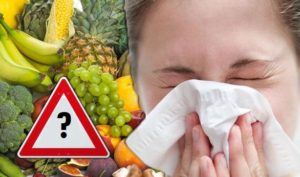
Most of us know that flu (influenza) is a viral infection, particularly common in the winter months, that can pass easily from individual to individual , for instance through coughing and sneezing. It can be prevented, to some extent, by avoiding people with it – not easy to know who does have it and who doesn’t, of course – and by having a flu vaccine. Treatments with pharmaceuticals (neuraminidase inhibitors like oseltamivir, channel blockers like amantadine, and symptom relievers like aspirin and NSAIDs) can be helpful but, as with pretty much all medications, there are known negative side-effects. But what dietary and other lifestyle factors has research shown are effective for prevention and treatment of this potentially fatal condition, especially when it leads to pneumonia?
Blog Contents
Immune system and flu
If you have a compromised immune system, you’re more likely to stand the risk of dying from flu – undernourished, diabetic, pregnant women, children (particularly under age 2) and individuals older than 65 years of age 1 . Since the immune system is so vital in avoiding and fighting off the flu virus, you’d imagine that anything which boosts that system would be of benefit…and you wouldn’t be wrong.
Exercise and flu
Moderate exercise has been shown to significantly improve our ability to produce antibodies in response to flu. This becomes particularly important as we age 2 .
Stress and flu
Levels of perceived stress have also been shown to reduce immune response to flu 3 , and there’s some evidence that stress-management methods (mindfulness 4 , etc) can significantly increase antibody concentrations 5 .
Sleep and flu
Getting insufficient sleep has been shown to make us more vulnerable to developing some serious diseases 6 , so it’s no surprise that research also shows that insufficient sleep can lead to an increased vulnerability to the effects of a flu virus 7 .
Obesity and flu
It’s been shown that being obese increases both the initial risk of contracting flu and of being affected more severely 8 . We have already looked at how obesity increases wherever the modern western diet spreads 9 , and at how eating a WFPB diet will not only stop you from becoming obese, but is also probably the best way to treat obesity and then maintain a healthy, optimum weight 10 .
Green tea and flu
Research has shown that drinking green tea is strongly associated with a reduced risk of contracting flu 11 . Whether it’s just the catechins 12 or a combination of various elements within the green tea, the evidence suggests that it’s worth having at least one or two cups of green tea daily 13 .
Broccoli and flu
We’ve looked at the research on how the sulforaphane in broccoli can treat cancer 14 , but here’s also evidence that broccoli is able to help in the prevention and treatment of flu 15 .
Final thoughts
The foregoing is by no means a comprehensive list of the dietary and lifestyle influences on influenza; but it may be sufficient to reveal that we are once again looking at those four cornerstones of health: diet, stress, sleep and exercise. Of course, knowing the best thing to do for our health and actually doing it are two very different things – but each small step taken in the right direction will help.

References
- People at High Risk of Developing Serious Flu–Related Complications [↩]
- de Araújo AL et al: Elderly men with moderate and intense training lifestyle present sustained higher antibody responses to influenza vaccine. Age (Dordr) 37:, 2015 [↩]
- Moynihan JA et al: Psychosocial factors and the response to influenza vaccination in older adults. Psychosom Med 66:950, 2004 Nov-Dec [↩]
- Mindfulness video with Jon Kabat-Zinn [↩]
- Vedhara K et al: Enhancement of antibody responses to influenza vaccination in the elderly following a cognitive-behavioural stress management intervention. Psychother Psychosom 72:245, 2003 Sep-Oct [↩]
- Can Insufficient Sleep Lead To Serious Diseases? [↩]
- Brain, Behavior, and Immunity. Volume 47, July 2015, Pages 35-43. The neuron-specific interleukin-1 receptor accessory protein is required for homeostatic sleep and sleep responses to influenza viral challenge in mice Christopher J.Davis, Danielle Dunbrasky, Marcella Oonk, Ping Taishi, Mark R. Opp, James M. Krueger [↩]
- Charland KM et al: Relationship between community prevalence of obesity and associated behavioral factors and community rates of influenza-related hospitalizations in the United States. Influenza Other Respir Viruses 7:718, 2013 [↩]
- England’s Obesity Hotspots [↩]
- Want to Lose Weight the Easy Way? [↩]
- Park M et al. Green Tea Consumption Is Inversely Associated with the Incidence of Influenza Infection among Schoolchildren in a Tea Plantation Area of Japan. J Nutr . 2011;141:1862–1870. [↩]
- What are catechins? [↩]
- Matsumoto K et al: Effects of green tea catechins and theanine on preventing influenza infection among healthcare workers: a randomized controlled trial. BMC Complement Altern Med 11:, 2011 [↩]
- Broccoli & Sulforaphane vs Cancer [↩]
- Noah TL et al: Effect of broccoli sprouts on nasal response to live attenuated influenza virus in smokers: a randomized, double-blind study. PLoS ONE 9:, 2014 [↩]